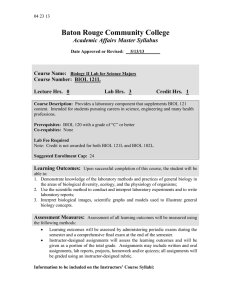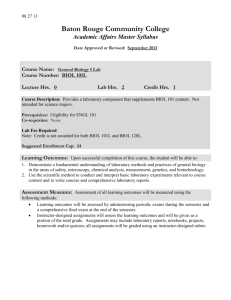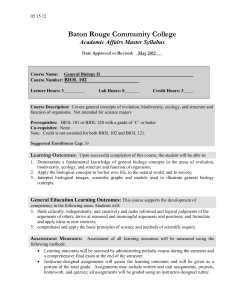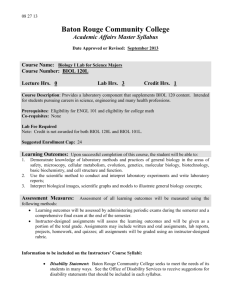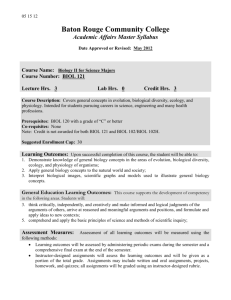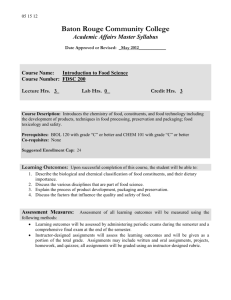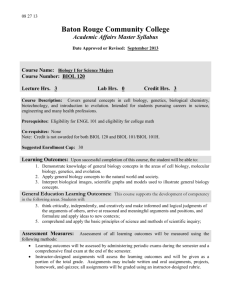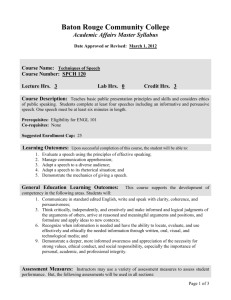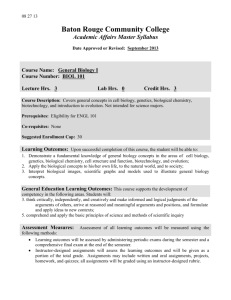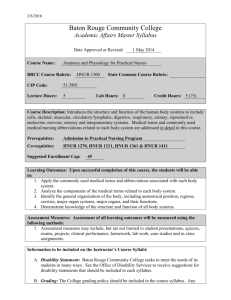BIOL 102L - Baton Rouge Community College
advertisement
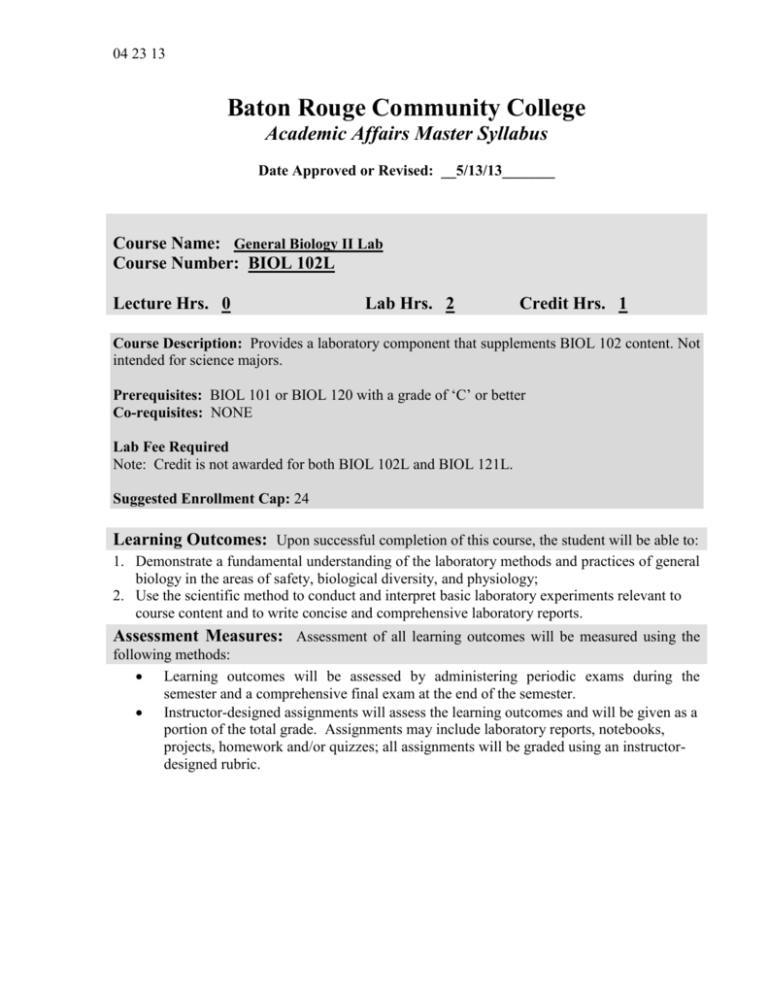
04 23 13 Baton Rouge Community College Academic Affairs Master Syllabus Date Approved or Revised: __5/13/13_______ Course Name: General Biology II Lab Course Number: BIOL 102L Lecture Hrs. 0 Lab Hrs. 2 Credit Hrs. 1 Course Description: Provides a laboratory component that supplements BIOL 102 content. Not intended for science majors. Prerequisites: BIOL 101 or BIOL 120 with a grade of ‘C’ or better Co-requisites: NONE Lab Fee Required Note: Credit is not awarded for both BIOL 102L and BIOL 121L. Suggested Enrollment Cap: 24 Learning Outcomes: Upon successful completion of this course, the student will be able to: 1. Demonstrate a fundamental understanding of the laboratory methods and practices of general biology in the areas of safety, biological diversity, and physiology; 2. Use the scientific method to conduct and interpret basic laboratory experiments relevant to course content and to write concise and comprehensive laboratory reports. Assessment Measures: Assessment of all learning outcomes will be measured using the following methods: Learning outcomes will be assessed by administering periodic exams during the semester and a comprehensive final exam at the end of the semester. Instructor-designed assignments will assess the learning outcomes and will be given as a portion of the total grade. Assignments may include laboratory reports, notebooks, projects, homework and/or quizzes; all assignments will be graded using an instructordesigned rubric. 04 23 13 Information to be included on the Instructors’ Course Syllabi: Disability Statement: Baton Rouge Community College seeks to meet the needs of its students in many ways. See the Office of Disability Services to receive suggestions for disability statements that should be included in each syllabus. Grading: The College grading policy should be included in the course syllabus. Any special practices should also go here. This should include the instructor’s and/or the department’s policy for make-up work. For example in a speech course, “Speeches not given on due date will receive no grade higher than a sixty” or “Make-up work will not be accepted after the last day of class.” Attendance Policy: Include the overall attendance policy of the college. Instructors may want to add additional information in individual syllabi to meet the needs of their courses. General Policies: Instructors’ policy on the use of things such as beepers and cell phones and/or hand held programmable calculators should be covered in this section. Cheating and Plagiarism: This must be included in all syllabi and should include the penalties for incidents in a given class. Students should have a clear idea of what constitutes cheating in a given course. Safety Concerns: In some programs this may be a major issue. For example, “No student will be allowed in the safety lab without safety glasses.” General statements such as, “Items that may be harmful to one’s self or others should not be brought to class.” Library/ Learning Resources: Since the development of the total person is part of our mission, assignments in the library and/or the Learning Resources Center should be included to assist students in enhancing skills and in using resources. Students should be encouraged to use the library for reading enjoyment as part of lifelong learning. Expanded Course Outline: I. Lab Practices A. Safety B. Use of Microscope II. Diversity of Life: Study of General Characteristics A. Bacteria, Protozoa, and Fungi B. Seedless Plants C. Seed Plants D. Invertebrates E. Vertebrates III. Plant Structure and Function A. Anatomy of Flowering plants 04 23 13 B. Characteristics of the Monocots and Eudicots IV. Animal (Mammalian) Structure and Function A. Tissue, Organs, and Organ Systems B. Digestion C. Heart, Cardiac Cycle, and Blood Pressure D. Circulation E. Brain and Spinal cord F. Sense Organs V. Ecology
